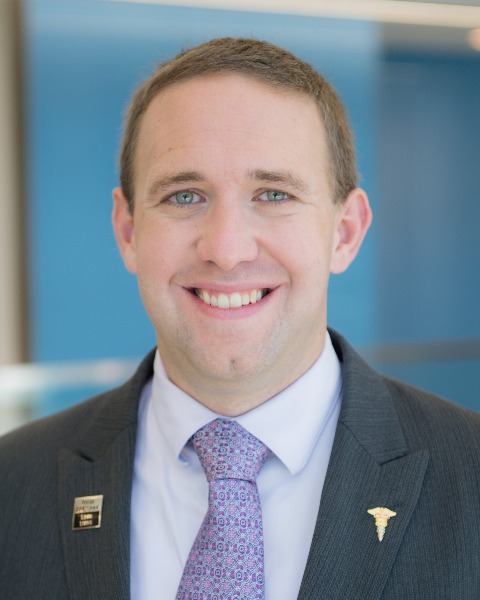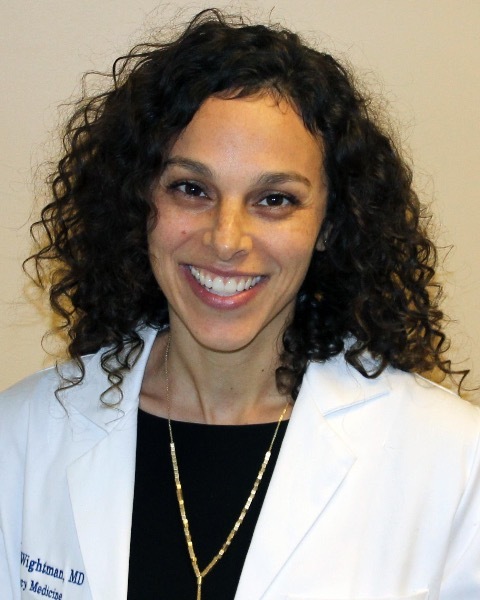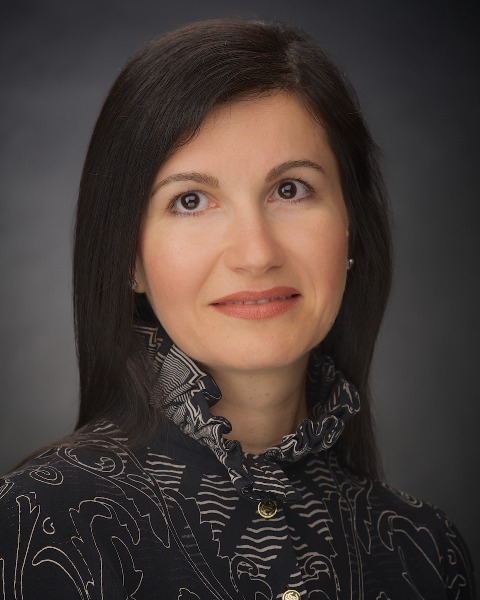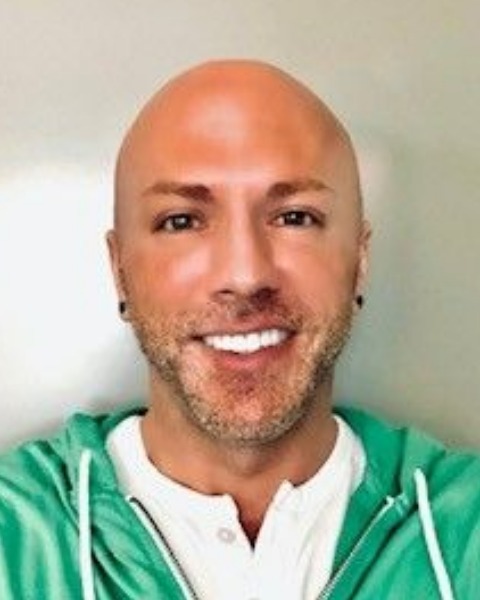
Policy & Science Plenary Session - Expanding Access to Care Through Telehealth: Lessons Learned During the Pandemic
-
Register
- Non-Member - $39
- Regular Member - $29
- Retired - $29
- Early Career Physician - $29
- Resident - $19
- Student - $19
- Associate - $19
- ASAM Staff - Free!
- International Member - $29
- Emeritus Member - $29
- Provisional Member - $29
- Fellow Member - $29
- Honorary Member - $29
- CRT Member - $29

Policy & Science Plenary Session - Expanding Access to Care Through Telehealth: Lessons Learned During the Pandemic
Recorded: Thursday, March 31, 2022 - Sunday, April 3, 2022
On-Demand Session
Overview
This 90-minute, on-demand session from the ASAM 53rd Annual Conference discusses the state of the research on telehealth for addiction treatment, innovative telehealth models, lessons learned during the pandemic, and implications for policies and practices going forward.
While there has long been interest in expanding access to addiction treatment through telehealth, there have historically been both regulatory and financial barriers that limited adoption. Through the COVID-19 public health emergency, federal and state regulations governing telehealth have been relaxed and payment mechanisms have expanded, leading to broad adoption with diverse models of implementation. This plenary session, moderated by ASAM President-Elect, Dr. Brian Hurley, will discuss the state of the research on telehealth for addiction treatment, innovative telehealth models, lessons learned during the pandemic, and implications for policies and practices going forward.
The target audience for this Intermediate level session includes physicians, nurse practitioners, physician assistants, other clinicians, researchers, residents, fellows, students, and counselors.
This session addresses the following ACGME Competencies: Medical Knowledge, System Based Practice.
Learning Objectives
Upon completion, learners will be able to:
- Describe the current state of the research on addiction treatment through telehealth.
- Describe simple telehealth solutions to the complex problem of access to substance use disorder treatment that are only now permissible due to regulatory changes during COVID-19.
- Describe the implementation of a telehealth model based on equity, diversity and inclusion principles, and lessons learned by addiction treatment facilities combining telehealth with digital therapeutics.
Registration Rates
| Rate Description | Rate |
| ASAM Member | $29 |
| Non-Member | $39 |
| Associate Member | $19 |
| Resident Member* | $19 |
| Student Member* | $19 |
*Residents, Fellows-in-training, Interns, and Students must join ASAM to receive a discounted registration rate. Click here to become an ASAM member. National and Chapter membership dues apply. There is no charge for Students to become a Member, but verification of student status is required.
Membership Question? Call ASAM at 1.301.656.3920, email us, or view the ASAM website for more information.
Refunds & Cancellations
All ASAM e-Learning Center refund requests must be made in writing to education@asam.org within 90 days of purchase. Those requesting refunds for courses that are in progress will receive partial refunds or e-Learning Center credit. Automatic full refunds will be made for any course with a live-course component that has been cancelled.
Registration Deadline: 05/01/2025
Course Instructions
- Click on the Contents tab to watch the on-demand recording.
- Click Complete Post Test to answer multiple choice questions. Participants will have 10 attempts to pass and must answer 2 out of 3 questions correctly.
- Click Complete Evaluation to provide valuable activity feedback. Scroll down on all questions as there may be answer options that expand past the size of the window.
- Click the button Claim Medical Credits in the box titled Claim Credits & Certificate. Choose the type of credit and click submit. Click the button View/Print Certificate to save or print your certificate. You can view/print your certificate at any time by visiting the ASAM eLearning Center, clicking Dashboard, and clicking Transcript/Achievements.
Need Assistance?
For assistance logging in, accessing activities, claiming credit, or for other questions or concerns, please check the FAQ page or e-mail Education@ASAM.org
ASAM is proud to offer Essential Accessibility to ensure our website is accessible and functional for all our learners while providing free assistive technology for people with the widest possible range of abilities.

Brian Hurley
MD, MBA, DFASAM
Brian Hurley, MD, MBA, DFASAM is an addiction physician and the Director of Addiction Medicine for the Los Angeles County Department of Health Services. Brian is currently a Director at Large for the American Society of Addiction Medicine (ASAM) and will assume the position of President-Elect this April 2021. He co-chairs the Los Angeles County Department of Health Services’ Substance Use Disorders Workgroup and the SafeMedLA Medications for Addiction Treatment Action Team, and is the Clinical Director of the Addiction Treatment Starts Here programs through the Center for Care Innovations, focused on increasing the delivery of Medications for Addiction Treatment in California’s community health centers. He is the PI of two MAT Access Points projects funded by the Sierra Health Foundation, a co-PI of a TRDRP funded smoking cessation implementation project, and a co-investigator on NIDA, NIAAA, and PCORI funded addiction related implementation science grants managed through RAND. He is a member of the Motivational Interviewing Network of Trainers and regularly conducts motivational interviewing trainings throughout the United States. He is a Volunteer Assistant Clinical Professor of Addiction Medicine in the Department of Family Medicine at the UCLA David Geffen School of Medicine. He additionally serves on the American Board of Psychiatry and Neurology’s Addiction Psychiatry examination writing committee.
Brian completed the Robert Wood Johnson Foundation Clinical Scholars Program at the University of California, Los Angeles (UCLA), and was previously a UCLA - Veterans Administration National Quality Scholar at the VA Greater Los Angeles Healthcare System. He completed a fellowship program in addiction psychiatry at New York University School of Medicine. He completed residency training at the Massachusetts General Hospital and McLean Hospital, where he was Chief Resident in Addiction Psychiatry. Brian is a former National President of the American Medical Student Association.
No relevant financial disclosures
.jpg)
Tyler Oesterle
MD, MPH
Tyler S. Oesterle, M.D., M.P.H., is Co-Chair of Addiction Medicine for Mayo Clinic Rochester. He serves as the medical director of the Mayo Clinic’s Intensive Addiction Program (IAP) and medical director of Mayo Clinic Health Systems rural chemical dependency treatment program (Fountain Centers). Dr. Oesterle joined the staff of Mayo Clinic in 2014 and holds the academic rank of assistant professor of psychiatry in the Mayo Clinic College of Medicine and Science.
Dr. Oesterle earned his B.A. from Brigham Young University in Provo, Utah, and his M.D. at the University of Minnesota Medical School, Twin Cities. He subsequently earned his M.P.H. through the University of Minnesota School of Public Health. Dr. Oesterle completed training in adult Psychiatry and fellowships in child and adolescent and addiction Psychiatry through the Mayo Clinic School of Graduate Medical Education. Dr. Oesterle is a board-certified adult psychiatrist, child and adolescent psychiatrist and addiction psychiatrist.
Dr. Oesterle’s clinical time is focused on the treatment of individuals with complex treatment resistant substance use disorders in both urban and rural settings. Dr. Oesterle’s research focuses on utilizing technology to assist with treatment for substance use disorders, genetics of substance use disorders, and evidence-based treatments for opioid use disorder. He has given many presentations on his work and has authored journal articles, abstracts, and other written publications.

Nzinga Harrison
MD, FASAM
With nearly two decades of experience in the medical field, Dr. Nzinga Harrison is a double-board certified physician in addiction medicine and psychiatry. She currently serves as Co-Founder & Chief Medical Officer for Eleanor Health, a value-based provider of comprehensive, outpatient addiction treatment. She is presently Vice-Chair for the Board of Physicians for Criminal Justice Reform, Inc., a national organization she co-founded and Member-At-Large for the ASAM Board of Directors. The Indianapolis native also hosts a weekly podcast, “In Recovery”, where she answers any and all questions about addiction, treatment, mental health, recovery, and everything in between.

Rachel S. Wightman
MD
Rachel S. Wightman, MD is an Assistant Professor in the Department of Emergency Medicine at The Warren Alpert Medical School of Brown University. She is the Director of Toxicology Education at Brown Emergency Medicine and serves as faculty of the Addiction Medicine Fellowship at Brown. She completed medical toxicology fellowship and emergency medicine residency at New York University School of Medicine/ Bellevue Hospital Center. She is board certified in medical toxicology and emergency medicine.
Dr. Wightman’s primary clinical expertise is in the evaluation and management of drug toxicity syndromes in complex medical patients and enhancing medication safety for high-risk drugs. Her scholarly interests focus on evaluation and tracking of emerging drug trends and medications for treatment of opioid use disorder.

Vania P. Rudolf
MD, MPH, DFASAM
Dr. Vania P. Rudolf is a family and addiction medicine physician who is providing care to pregnant and parenting women with substance use disorder. She has a background in family medicine with OB and has completed Fellowships in Integrative Medicine, Addiction Medicine and High Risk Obstetrics at Swedish Medical Center. She has earned public health training at the UW. Dr. Rudolf continues to be a compassionate advocate for improving kind non-judgmental services and removing barriers to care. Providing compassionate trauma-responsive care to vulnerable birthing people, babies and families is the primary focus of her practice in addition to clinical research related to provider education, clinical outcomes for substance use disorder, transition to MOUD and prescribing policies to optimize safe and adequate postpartum analgesia management.
She is part of the Addiction Recovery Services at Swedish Medical Center, an assistant professor at University of Washington, Seattle, WA and the Chair for the National Womens' Addiction Group related to the American Society of Addiction Medicine. She serves on the maternal mortality review board for the state of Washington and has many years as a practicing clinician.
No relevant financial disclosures.

Jake Ketchum
CME, CE, CEU and Other Credit Types

ACCME Accreditation Statement
The American Society of Addiction Medicine is accredited by the Accreditation Council for Continuing Medical Education (ACCME) to provide continuing medical education for physicians.
AMA Credit Designation Statement
The American Society of Addiction Medicine designates this enduring material for a maximum of 1.5 AMA PRA Category 1 Credits™. Physicians should claim only the credit commensurate with the extent of their participation in the activity.
NAADAC, the Association for Addiction Professionals
This activity has been approved by the American Society of Addiction Medicine, as a NAADAC Approved Education Provider, for educational credits. NAADAC Provider #295, ASAM is responsible for all aspects of the programming.
California Association for Drug/Alcohol Educators (CAADE)
This educational program is approved by CAADE: #CP40 999 1222.
California Association of DUI Treatment Centers (CADTP)
This educational program is approved by CADTP: #205.
California Consortium of Addiction Programs and Professionals (CCAPP)
This educational program is approved by CCAPP: #OS-20-330-1222.
Continuing Education Credits (CEUs)
Non-physician participants will receive a certificate of attendance upon completion of the activity and an online evaluation confirming their participation. Participants should submit his/her certificate of attendance to their professional organization/institute.
Maintenance of Certification (MOC) or Continuing Certification Programs (CCP)
American Board of Medical Specialties (ABMS)
Through the American Board of Medical Specialties (“ABMS”) ongoing commitment to increase access to practice relevant Continuing Certification Activities through the ABMS Continuing Certification Directory, The ASAM 53rd Annual Conference has met the requirements as a MOC Part II CME Activity (apply toward general CME requirement) for the following ABMS Member Boards: Allergy and Immunology, Anesthesiology, Colon and Rectal Surgery, Family Medicine, Medical Genetics and Genomics, Nuclear Medicine, Physical Medicine and Rehabilitation, Plastic Surgery, Preventive Medicine, Psychiatry and Neurology, Radiology, Thoracic Surgery, Urology
American Board of Preventive Medicine (ABPM)
The American Board of Preventive Medicine (ABPM) has approved this activity for a maximum of 1.5 credits towards ABPM MOC Part II requirements.
American Board of Anesthesiology (ABA)
This activity contributes to the CME component of the American Board of Anesthesiology’s redesigned Maintenance of Certification in Anesthesiology TM (MOCA®) program, known as MOCA 2.0®.
American Board of Pediatrics (ABP)
Successful completion of this CME activity, which includes participation in the activity, with individual assessments of the participant and feedback to the participant, enables the participant to earn a maximum of 1.5 MOC points in the American Board of Pediatrics’ (ABP) Maintenance of Certification (MOC) program. It is the CME activity provider’s responsibility to submit participant completion information to ACCME for the purpose of granting ABP MOC credit.
American Board of Internal Medicine (ABIM)
Successful completion of this CME activity, which includes participation in the evaluation component, enables the participant to earn up to 1.5 Medical Knowledge MOC points in the American Board of Internal Medicine’s (ABIM) Maintenance of Certification (MOC) program. Participants will earn MOC points equivalent to the amount of CME credits claimed for the activity. It is the CME activity provider’s responsibility to submit participant completion information to ACCME for the purpose of granting ABIM MOC credits.
American Board of Surgery (ABS)
Successful completion of this CME activity, which includes participation in the evaluation component, enables the learner to earn credit toward the CME and/or Self-Assessment requirements of the American Board of Surgery’s Continuous Certification program. It is the CME activity provider's responsibility to submit learner completion information to ACCME for the purpose of granting ABS credit.
American Board of Psychiatry and Neurology (ABPN)
Successful completion of this CME activity can be used to satisfy the American Board of Psychiatry and Neurology’s (ABPN) CME requirement for Maintenance of Certification program.
American Board of Addiction Medicine (ABAM)
Successful completion of this activity can be used to satisfy the American Board of Addiction Medicine (ABAM) Tmoc credit requirements.
Royal College of Physicians and Surgeons of Canada (RCPSC)
Royal College Fellows can use participation in Accredited Continuing Medical Education to earn Section 3 Credits.
Disclosure Information
In accordance with disclosure policies of ASAM and the ACCME, the effort is made to ensure balance, independence, objectivity, and scientific rigor in all CME activities. These policies include mitigating all possible relevant financial relationships with ineligible companies for the Planning Committees and Presenters. All activity Planning Committee members and Faculty have disclosed relevant financial relationship information. The ASAM CME Committee has reviewed these disclosures and determined that the relationships are not inappropriate in the context of their respective presentations and are not inconsistent with the educational goals and integrity of the activity.

